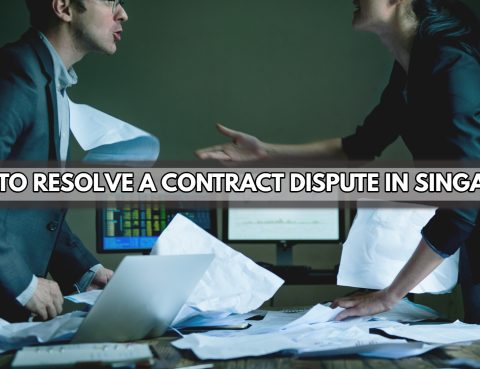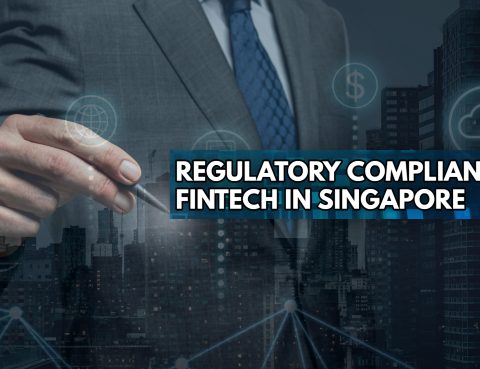When launching a business, you enter into many different types of contracts, including office and equipment leases, shareholder agreements, employment agreements with new workers, and client and supplier contracts. Wherever there is human interaction, conflict is inherently inevitable. Some of these conflicts may lead to a contract dispute. Therefore, it is essential that you have a fair understanding of what laws and regulations govern contract disputes in Singapore and how the legal services of a breach of contract lawyer can steer you in the right direction. This article examines what a contract dispute is, including methods for resolving various types of disputes and the choices available to the parties/individuals concerned.
What is a Contract Dispute?
Typically, a contract dispute arises when either you or your client disagree with the terms or definitions of the contract. Contractual disagreements may be costly and time-consuming, end up in court, and harm your business relationships and reputation if handled improperly.
Common disputes include:
- Breach of Contract
These occur when one party in a contract believes the other side has not fulfilled the terms of the contract. From nonpayment, poor service, to late delivery or defective goods, this type of business conflict frequently necessitates the involvement of a commercial disputes lawyer.
- Partnership Disputes
Partnership disputes involve disagreements about business obligations, company goals, and general misconduct, ranging from fraud to aggressive behavior.
- Employment Disputes
There are many things that can lead to employment disputes, such as a breach of confidentiality, employee pay and commissions, or summary dismissal.
Common Contract Dispute Resolution Methods in Singapore
Contract dispute resolution is the process of settling disagreements and conflicts between persons or parties. Although many business disputes may wind up in court, this does not have to be for every case. Fortunately, businesses in Singapore have a variety of methods at their disposal to resolve disputes without opting for a court procedure.
Civil Litigation
A lawsuit is a common option to resolve a dispute. Civil litigation refers to the process of taking legal action or filing a lawsuit against another party and ends with a judge determining a legally binding conclusion for both parties.
The Singapore legal system has a hierarchical court structure to promote fair access to justice and expeditious proceedings relative to the value of the claim. In other words, the amount of work is commensurate with the complexity—a $5 million claim in the High Court will take significantly longer and be more complex than a $5,000 claim in the Small Claims Tribunals.
Proceedings in court are mostly considered public, and high profile cases can draw curious public spectators or be reported in the press.
Mediation
Mediation is a voluntary and private procedure where the parties look for a workable resolution to their conflict. An impartial third person (the mediator), often a qualified lawyer, helps the parties come to an amicable agreement, and directs the parties in their decision-making process. This includes,
- Identifying the issues in the dispute
- Looking at available options
- Negotiating a settlement agreement
The terms of the settlement agreement are determined completely by the parties, and the mediator does not impose a decision on any of them.
If the parties fail to arrive at a settlement even after mediation sessions, then they will proceed to take legal action.
Mediation is usually the lowest-cost option amongst the dispute resolution methods.
Arbitration
In typical litigation, a judge in a public court hears your case and renders a decision on the conflict. Arbitration, on the other hand, is a confidential and private hearing, and you and the other party have the freedom to choose the arbitrator (who is often a lawyer with industry experience). The arbitrator will make a decision that is legally binding on the parties.
Don’t Ignore the Notice!
If you are served with an Originating Claim, Originating Summons or Notice to Arbitrate, seek legal advice immediately – such notices should never be ignored.
There is a fixed amount of time to respond to an Originating Claim, Summons or Arbitration notice. The failure to respond appropriately in a timely manner could result in a court judgment or arbitration award that you are liable and owe a sum of money to another party, because you have chosen not to contest the claim.
Consult with a dispute resolution lawyer immediately and seek advice on the best course of action available to you.
Hire a Contract Dispute Resolution Lawyer in Singapore
Regardless of whether you decide to settle your disagreement out of court or go in for civil litigation, it is absolutely necessary that you consult the services of an experienced dispute resolution lawyer first. Whether it is a breach of trust, an employee dispute, a partnership dispute, or debt collection in Singapore, our experienced lawyers at Christopher Bridges Law Corporation can help you.
As a licensed commercial and criminal litigation law firm in Singapore with offices within Asia, we have a very strong working connection with our ASEAN partners. This places us in a unique position to serve all our private, corporate, domestic, and international clients better. If you have a matter that calls for legal assistance, contact our legal experts today for a free consultation session.
Financial Technology, popularly known as ‘fintech,’ refers to the innovative technology that improves and automates the delivery and usage of financial services. It often includes technological penetration in the 4 main financial areas of payments, savings, lending, and insurance. The exponential growth in fintech over the last few years around the globe and in Asia has raised many concerns pertaining to the laws and regulations that govern them. Read on to find out more about what measures are in place, why regulatory measures are important when it comes to fintech in Singapore, and how a fintech lawyer can assist you to understand and conform to the regulatory compliance of fintech better.
Fintech in Singapore
The Monetary Authority of Singapore (MAS) has undertaken various initiatives to solidify Singapore’s status as a regional and global trade and finance hub. As part of this enterprise, Singapore has committed to developing a financial ecosystem that would facilitate the digitalization of its economy and the development of fintech. Furthermore, the concept of “Smart Nation” was also introduced by the MAS in its bid to prepare Singapore’s citizens, workforce, and government for this fundamental shift in the financial fabric.
Why Fintech Regulatory Measures Are Important?
The widespread use of technology in the financial sector has also created new hurdles in regulatory enforcement. The financial services industry has become significantly more vulnerable to attack, theft, fraud, and other cyber-criminal behavior as a result of the digital transformation of finance.
As the variety of financial innovations, the ubiquity of their use, and the rate at which they evolve have grown significantly, authorities are finding it increasingly challenging to devise suitable regulatory responses.
How Is Fintech Facilitated and Regulated in Singapore?
Regulations for Digital Assets, Cryptocurrencies, and Fintech have been progressively developing in Singapore over the last few years. Furthermore, changes in surveillance and enforcement are also noted.
· The Payment Services Act
The Payment Services Act 2019 (PSA) is regarded as a forward-looking and adaptable regulatory framework for Singapore’s payment systems and payment service providers. The PSA states that a license is required to conduct certain crypto-related businesses, cryptocurrency-related activities, transmission of cryptocurrencies, brokerage services for cryptocurrencies, and custody services for cryptocurrencies.
· Digital Tokens/Coins, Cryptocurrency, Non-Fungible Tokens (NFTs)
The advancement of technology has also given rise to digital tokens and Initial Coin Offerings (ICOs). The Digital Token Guide stipulates that MAS may regulate offers or issuance of digital tokens if they constitute capital market products under the Securities and Futures Act (SFA).
The trading of NFTs would fall under the regulations as NFTs can be transferred, stored or traded electronically for another type of token or for monetary value.
How Can a Fintech Legal Advisor Help You?
As business operations become more globalized the risks associated with business expansion also become greater. This is when an in-depth understanding of Anti Money Laundering (AML) regulations and Know Your Customer (KYC) regulations can essentially help you to stay out of troubled waters. The consequences of breaking AML regulations include disciplinary fines, legal/criminal proceedings, sanctions, reputational damage, and a loss of shareholder confidence.
Christopher Bridges Fintech Lawyers
Our fintech legal advisors will work closely with you to help you navigate your fintech journey all the way from start-up through to eventual exit. We will also provide you with the necessary advice and counsel on the regulatory implications of adopting specific disruptive technologies and help businesses such as platform providers in the fintech industry conform to regulations.
With an experienced and reputed fintech lawyer by your side, you can be rest assured that all regulatory compliance pertaining to your business operations is well taken care of. We specialize in legal advice on the AML/CFT regulations, legal advice on company best practices/KYC, and legal opinion on compliance with the Payment Services Act, digital payment token guidelines, and SFA regulations among other blockchain/fintech legal advice. Contact us today to accelerate your fintech journey.


